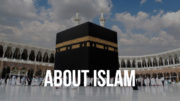He may be living right next door
There is the riddle that goes like this, “What is the meaning of the number, 668?” The answer is, “This is the neighbor of the Beast.”
Because evil is a force, it’s not really accurate to call someone evil—even if that someone is really, really evil. This is the accepted orthodoxy of Christian theology. It’s why the Apostle Paul would say, “For we do not wrestle against flesh and blood, but against principalities, against powers, against the rulers of the darkness of this age, against spiritual hosts of wickedness in the heavenly places.” (Ephesians 6:12 NKJV)
More to the point, if we are to accept that all people are created imago dei—in the image of God, and God did not create evil, there must be another explanation for it.
The issue of understanding evil has puzzled most civilizations for all of creation. Civilization is understood to be “an advanced state of human society, in which a high level of culture, science, industry, and government has been reached.” Not every place on earth is now or has exhibited a history of demonstrably civilized life, based on that definition alone—though arguably, most have.
No, evil is not created so much as it is cultivated; and so it is symbiotic on the created thing in this horrible way: it forms and grows by overwhelming the man who ignores the cautionary injunctions to avoid it. This is much the same way atmospheric pressure will crush a submarine in the deepest ocean, if it’s not fully strengthened and equipped.
Atheists want to believe that we became civilized by that definition, but there is something incomplete in that concept that needs correcting.
Because there is something missing if that’s all that describes civilization. It must include a dependence on transcendent truth; something much higher than that of a “a high level of culture.” This is because the truly civilized eschews all forms of coercion, brutality, and of course… evil. Any society that is harnessed to the boorish force of power like Marxism, for example, is devoid of truth and beauty, and without truth and beauty in their aspirations, they inevitably destroy the civilizations they replace.
Over the centuries, and certainly in the most recent epoch, most societies have gradually abandoned these simple, yet undeniably profound essentials of pursuing truth and beauty.
This is the reality of where we are now. Western civilization, the progenitor of American exceptionalism, is staring into the deeply horrifying maw of an evil few have experienced in the surviving generations following the first half of the twentieth century. Ironically, in a part of the world where civilization can be traced back literally thousands of years, most have, quite literally, no understanding and no concept of either truth or beauty. Admittedly this is from a Western civilized perspective. One man’s beauty is another man’s jihad.
We are seeing power fueled by a hate that almost no one can really avoid. The truth for such people who do not know the truth, is meaningless. Their evil will last until the end of this age, so we might want to address this re-emerging form of it: anti-semitism.
It’s still to be found… everywhere
For thousands of years, the Jews have been hated, persecuted, scattered, mocked and reviled. There is a reason for this, and it’s this: the Jews are special. Everyone knows it, and it makes some crazy. As a people, they represent 0.2% of the population of the world, estimated at 16.1 million. And yet, the Jewish contribution to Western civilization has been enormous.
The historic role of Judaism in Western culture and civilization
“Judaism has played a significant role in the development of Western culture because of its unique relationship with Christianity, the dominant religious force in the West. Although the Christian church drew from other sources as well, its retention of the sacred Scriptures of the synagogue (the Old Testament) as an integral part of its Bible—a decision sharply debated in the 2nd century CE—was crucial. Not only was the development of its ideas and doctrines deeply influenced, but it also received an ethical dynamism that constantly overcame an inclination to withdraw into world-denying isolation.”
“It was, however, not only Judaism’s heritage but its persistence that touched Western civilization. The continuing existence of the Jews, even as a pariah people, was both a challenge and a warning. Their liberation from the shackles of discrimination, segregation, and rejection at the beginning of the modern era was understood by many to be the touchstone of all human liberty. Until the final ghettoization of the Jew—it is well to remember that the term ghetto belongs in the first instance to Jewish history—at the end of the Middle Ages and the beginning of the Renaissance, intellectual contact between Judaism and Christianity, and thus between Judaism and Western culture, continued.”
True believing Christians know that the Jews are special not just because of their contributions, but because they are God’s chosen people. The Palestinians have no such relationship with God; moreover, they have no status as an indigenous people in the accepted rule of law governing statehood or national history—not to mention the biblical account.
Palestine, Uti Possidetis Juris, and the Borders of Israel (Arizona Law Review)
“Israel’s borders and territorial scope are a source of seemingly endless debate. Remarkably, despite the intensity of the debates, little attention has been paid to the relevance of the doctrine of uti possidetis juris to resolving legal aspects of the border dispute. Uti possidetis juris is widely acknowledged as the doctrine of customary international law that is central to determining territorial sovereignty in the era of decolonization. The doctrine provides that emerging states presumptively inherit their pre-independence administrative boundaries.”
Applied to the case of Israel, uti possidetis juris would dictate that Israel inherit the boundaries of the Mandate of Palestine as they existed in May, 1948. The doctrine would thus support Israeli claims to any or all of the currently hotly disputed areas of Jerusalem (including East Jerusalem), the West Bank, and even potentially the Gaza Strip (though not the Golan Heights).
From Harvard faculty and students to Starbucks’ union employees, there is no shortage of invective denunciation for Israel’s reaction to the horrific slaughter of their innocent men, women, and children. Their support not only of the Palestinians that live in the Gaza Strip, but also their defense of the Hamas terrorists is both cruel and risible. This brings us to my concluding observation… lacking the ability to understand transcendent truth, the historical record, and common decency, such people have nothing to offer that really matters. Still, I would ask, “are these people too, overtaken by the force of evil?”
If I were a betting man—which I’m not—I would wager they are.





